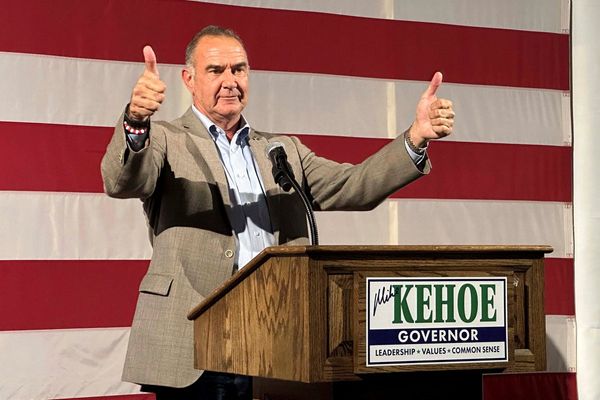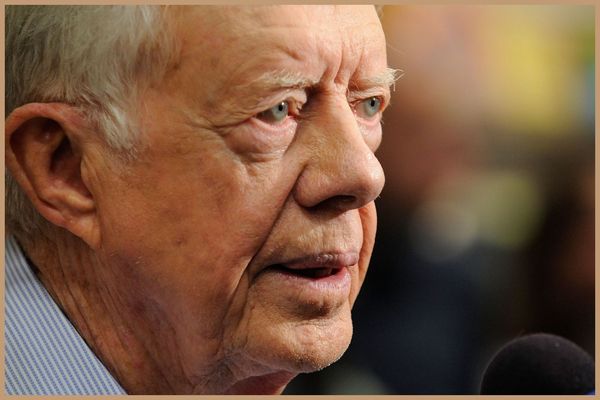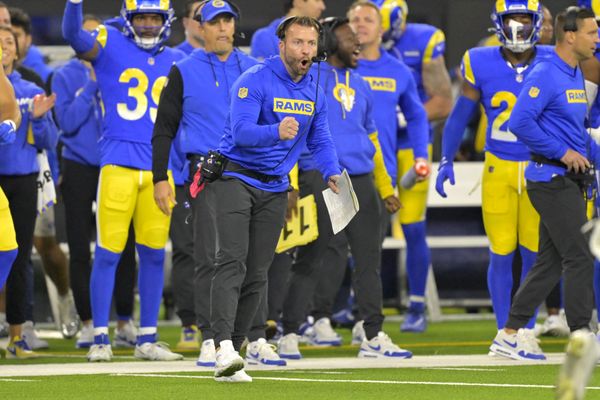ORLANDO, Fla. — On June 11 of last year, authorities say Frank Artiles met Alex Rodriguez in the parking lot of a Miami bank, where Artiles gave Rodriguez $2,000 in cash so his friend could open a campaign account and run as a sham candidate in an important state Senate election in South Florida.
Then, they say, Artiles told Rodriguez he had to rush to the airport so he could fly to Tallahassee and hand-deliver Rodriguez’s elections paperwork.
A month later, records show that Artiles billed Data Targeting Inc. — the political consulting firm that was at the same time being paid millions of dollars by state Republican leaders to run Senate campaigns — for the cost of a plane ticket that he’d purchased on June 11.
Artiles, a former Republican state senator who became a lobbyist and political consultant, is now awaiting trial on charges related to the sham-candidate scheme, in which authorities say Artiles bribed Rodriguez to put his name on the ballot as an independent candidate. A dark-money group then featured Rodriguez’s candidacy in advertisements prosecutors say were designed to siphon support from the Democratic candidate in the race — which the Republican candidate won by just 32 votes out of more than 210,000 cast.
Within days of submitting Rodriguez’s paperwork, Artiles was being paid $15,000 a month plus expenses by Data Targeting to work on South Florida Senate races, according to documents obtained by investigators in the case, which have been released in the past week as public records. The Gainesville-based firm oversaw Republican state Senate campaigns last year and worked directly with Senate President Wilton Simpson, one of the most powerful people in the state.
Two other Senate races — one in Central Florida and another in South Florida — also featured independent candidates who did no campaigning but were supported by nearly identical advertisements funded by the same dark-money group. The Republican candidate ultimately won in both of those races, too, helping the party retain its majority in the 40-member state Senate.
There’s no indication that Data Targeting or those in charge of it are targets of investigators, and records indicate the firm was cooperative in handing over emails, invoices and phone logs to prosecutors in Miami in response to a subpoena.
Data Targeting CEO Pat Bainter did not respond to emails seeking comment. Neither did Simpson, a Republican from Pasco County.
Artiles’ attorney, Frank Quintero, declined to comment about his client’s work for Data Targeting citing Artiles’ upcoming trial, which is scheduled to begin Aug. 30.
“Any explanations regarding allegations in the case will have to await the trial and they will be addressed at that time,” he wrote in an email.
Run by Bainter, a longtime Republican strategist, from an office in Gainesville, Data Targeting is one of the most prominent GOP political shops in Florida.
During the 2020 election cycle, the firm served as the top consultant for the Florida Republican Senatorial Campaign Committee, the Senate fundraising arm of the Republican Party of Florida which was led at the time by Simpson, who became president of the state Senate following the elections. Records show that the Senate Republican committee paid Data Targeting more than $7 million during the 2020 elections.
But while Data Targeting oversaw Republican Senate campaigns around the state, its contract with Artiles suggests the firm also worked with consultants tasked to focus on specific races and regions.
Records show Data Targeting was paying Artiles $15,000 a month in the months leading up to last year’s election to be a consultant on “certain contested Florida Senate Districts in Miami-Dade County.” The contract does not spell out the precise work that Artiles was expected to perform. But it did include a clause forbidding Artiles from providing political services to anyone else in those Senate districts without Data Targeting’s written consent.
According to an arrest affidavit filed when Artiles was charged, Artiles first contacted Alex Rodriguez in mid-May and laid out a strategy in which Artiles offered Rodriguez $50,000 to run as an independent candidate in Senate District 37 “in an attempt to confuse voters and siphon votes” from the then-Democratic incumbent who had the same last name.
Artiles signed his contract with Data Targeting on June 9. The next day, according to investigators, Artiles met Rodriguez again to have his friend fill out election paperwork and then sent him to meet with Alejandro De Varona, a Miami attorney who notarized the documents in the parking lot of a Doral restaurant.
On June 11, Artiles and Rodriguez met at the Miami bank where police say Artiles gave Rodriguez the $2,000 to open his campaign account. On his first campaign finance report, Rodriguez claimed to have loaned himself $2,000.
“After the Alex Rodriguez Campaign account was opened, Artiles indicated to Rodriguez that he needed to rush to the airport for a flight to Tallahassee to file the paperwork with elections document,” Miami Police Detective Eutimio Cepero wrote in the arrest affidavit
Rodriguez wasn’t the only independent candidate that Artiles was helping, records suggest.
In neighboring Senate District 39, which includes parts of Miami plus the Florida Keys and where a Republican and Democratic member of the state House were squaring off, 81-year-old Celso Alfonso filed to run as an independent candidate.
Like Rodriguez, Alfonso reported a $2,000 loan to himself on his first campaign finance report. And like Rodriguez, he did no real campaigning himself but was featured in advertisements that appeared designed to appeal to Democratic voters. The Republican candidate won that race, too.
When investigators raided Artiles’ home in March, they found a manila envelope containing paperwork for the treasurer of Alfonso’s campaign, court records show. Alfonso later told the Miami Herald that Artiles had recruited him at a barbershop.
Rodriguez’s qualifying check was hand-delivered to the Division of Elections at 8:40 a.m. June 12, according to the time stamp on the check. Alfonso’s qualifying check was hand-delivered one minute later.
It’s not clear whether Artiles’ involvement in the Senate District 39 race or Alfonso are part of the criminal probe, though records show investigators have interviewed Alfonso’s wife, who served as his campaign treasurer.
Alfonso couldn’t be reached for comment.
Records made public so far by Miami prosecutors in the Artiles case stop short of establishing that the former lawmaker was billing Data Targeting for his work getting Rodriguez or Alfonso on the ballot, though details in an invoice he sent to Bainter several weeks later line up.
Along with his monthly $15,000 fee, the invoice included nearly $5,000 in expenses that appeared to catch Data Targeting’s chief financial officer, Lance Gardner, by surprise: “$4,975.00 in expenses? Did you approve those? Need an itemization?” Gardner wrote in a July 9 email to Bainter.
“Absolutely not,” Bainter responded, though it’s unclear which of Gardner’s questions he was answering.
About a week later, Artiles appears to have resubmitted the invoice with some supporting documentation. “Pat, As per our conversation, attached are the receipts for flight and the parking,” Artiles wrote in a July 17 email to Bainter. “I did not submit for reimbursement for food or lodging for the 24 hours.”
The invoice listed five expenses totaling $4,975.83.
Those expenses included two credit card charges to American Airlines — for $418.20 and $90.63 — with a transaction date of June 11, the same day police say Artiles rushed to the Miami airport to catch a flight to Tallahassee. And they included a $17 credit card payment for parking at Miami International Airport with a transaction date of June 12.
American is the only airline that flies nonstop between Miami and Tallahassee, according to Tallahassee Regional Airport’s website.
In addition to the travel charges, the invoice shows that Artiles also billed Data Targeting $200 for courier service delivery fees for two people; $250 for an apparent background check performed by an attorney; and $4,000 for “research.”
“Is this good? There’s a line item for $4,000 for ‘Research,’” Gardner wrote in a July 17 email to Bainter.
“It is,” Bainter responded.
Another mysterious expenditure revealed in the records occurred June 16, when Gardner appears to have arranged to wire transfer $100,000 to a nonprofit called “Florida Stronger.”
It’s not clear from the emails what prompted the transfer, but Artiles was part of the email chain.
Corporate and tax records show there is a Miami-based nonprofit called Florida Stronger Inc. One of the officers is de Varona — the Miami attorney whom Artiles sent Rodriguez to meet to have his election forms notarized.
Another officer is Jose Riesco — a Miami accountant who served as the treasurer for Rodriguez’s campaign. Riesco signed Rodriguez’s campaign qualifying check, according to police records.
Neither de Varona nor Riesco responded to requests for comment.
Though Florida Stronger does not disclose its donors, election records show that a political committee controlled by Republican state Sen. Jason Brodeur of Sanford gave the organization $25,000 in 2018 — more than 10% of the money Florida Stronger raised that year, according to the nonprofit’s tax records.
Brodeur was elected to the Senate last year in Senate District 9 in Central Florida — where the third independent candidate, Jestine Iannotti, appeared on the ballot. Like Rodriguez and Alfonso, Iannotti did no campaigning of her own but was supported by the same dark-money group as the other two.
There is no indication that Artiles played any role in Iannotti’s race, though a different controversial political consultant from Central Florida did. Eric Foglesong contributed $300 to Iannotti’s campaign and likely wrote the check that paid her filing fee just months after he pleaded guilty to stealing money from another campaign and was ordered to pay $20,000 in restitution.
Brodeur did not respond to a question about why he donated to Florida Stronger. Tax records show about three-quarters of the $190,000 the organization spent in 2018 was for political consulting.
On July 16 of last year, state election records show that Florida Stronger donated a combined $30,000 to six different political committees. De Varona was the chairman and Riesco was the treasurer of all six committees, and each was based at the same Miami address as Florida Stronger.
About two months later, on Sept. 14, Artiles emailed Bainter with his latest $15,000 monthly invoice. In the note, Artiles signaled that he was ready to provide more help with independent candidates, noting “I have 6 PC’s” — a commonly used acronym for political committee — that Artiles wrote could be used “for independents if needed.”
“I am standing by for orders,” Artiles wrote.
———







